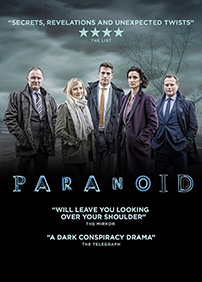An intriguing two part telling of one of the most audacious heists in British history – the theft of £2.61 million from the Royal Mail train travelling between Glasgow and London in August 1963.
Over its two parts (each 90 minutes long, both written by Chris Chibnall), The Great Train Robbery sees events from two sides. Part one, with Bruce Reynolds (Luke Evans) heading the gang, is the lead up and stopping of the train as some 15 men, holed up for a week in a nearby farm purchased specifically for the occasion, empty the train of 120 mailbags. An enormous embarassment to the government of the day, DCS Tommy Butler (Jim Broadbent) is placed in charge of the investigation with DI Frank Williams (Robert Glenister) his righthand man. Results are expected – and quickly. Part two is the tracking down of the gang with pressure placed on narks to deliver names – nothing of this size would not go unnoticed in the London underworld.
Some are rounded up pretty quickly – the instruction not to flash money around too easily ignored by some. And the clean up of the farmhouse was not as thorough as it should have been. But it’s the ringleaders the overbearing and bullying Butler (its the 1960s after all – 15 hour shifts 7 days a week expected with no time off) wants – and the likes of Reynolds, Gordon Goody (Paul Anderson) and Roy James (Martin Compston) are that much more difficult to track down. Reynolds certainly keeps his head down – with the takings more than double what was expected (calculated to present-day value of £58 million), he knows the authorities will throw everything at him: even Parliament steps in and interferes with investigations.
Both parts are straightforward, point-of-view procedural dramas chronicling events and built around known truths. It’s all pretty low key but intriguing nevertheless – but with Reynolds a likeable rogue and Butler a bullying member of the establishment, there’s no doubt where most sympathies lie!
Rating: 64%




